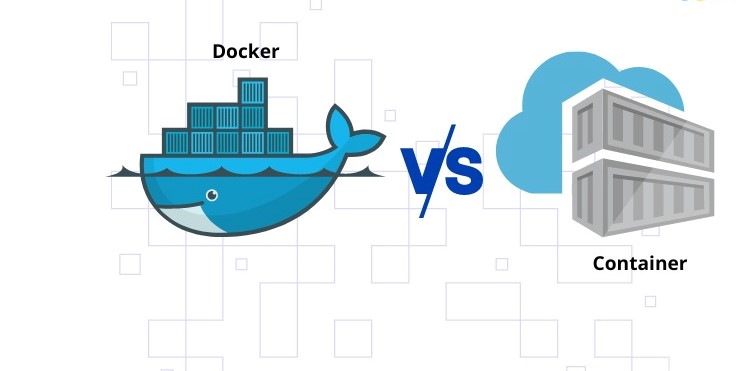Docker Vs Container
When it comes to containerization, Docker and containers are often used interchangeably. However, there is a difference between the two. In this blog post, we will explore the differences between Docker and containers, their benefits, and when to use each solution.
Docker
Docker is an open-source platform that allows developers to create, package, and deploy applications as containers. Docker provides a way to package an application and its dependencies into a container that can run on any system with Docker installed. Docker containers are isolated from each other and from the host system, providing a consistent and predictable environment for applications.
Docker provides many benefits, including:
- Consistency: Docker containers provide a consistent environment for applications, making it easy to deploy and manage applications across different environments.
- Portability: Docker containers can run on any system with Docker installed, making it easy to move applications between different environments.
- Efficiency: Docker containers are lightweight and can be spun up quickly, allowing for easy scaling of applications.
Containers
A container is a lightweight, standalone executable package of software that includes everything needed to run an application, including the code, runtime, system tools, libraries, and settings. Containers are an alternative to virtual machines, as they provide a lightweight and efficient way to package and deploy applications.
Containers provide many benefits, including:
- Isolation: Containers provide an isolated environment for applications, ensuring that they don’t interfere with each other or with the host system.
- Portability: Containers can be easily moved between different systems, making it easy to deploy and manage applications.
- Efficiency: Containers are lightweight and can be spun up quickly, allowing for easy scaling of applications.
Differences
The main difference between Docker and containers is that Docker provides a platform for creating and managing containers, while containers are a standalone technology. Docker provides a set of tools and services for creating and managing containers, while containers are a way to package and deploy applications.
Another key difference between Docker and containers is that Docker provides additional functionality beyond containerization, such as networking, storage, and orchestration. Docker also provides a way to manage and distribute images, making it easy to share and deploy applications.
When to use each solution
Use Docker when:
- You need a platform for creating and managing containers.
- You need additional functionality beyond containerization, such as networking, storage, and orchestration.
- You need to manage and distribute images.
Use containers when
You need a lightweight and efficient way to package and deploy applications.
You need to isolate applications from each other and from the host system.
You need to easily move applications between different systems.
In summary, while Docker and containers are often used interchangeably, there is a difference between the two. Docker provides a platform for creating and managing containers, while containers are a standalone technology. Choosing the right solution depends on the specific use case and the requirements of the application.









